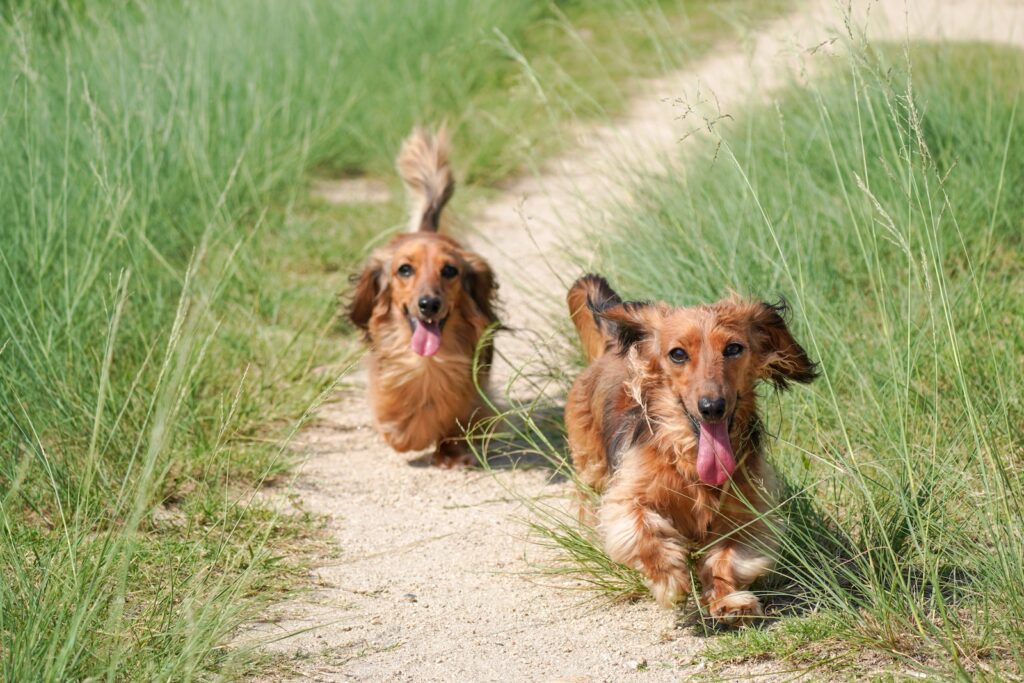Can Dogs Eat Chives? — No, They Can’t
Chives, a popular herb in many culinary dishes, may add a burst of flavor to our meals, but unfortunately, they are not safe for our furry friends. Dogs should not consume chives due to their potential risks.
Can Puppies Eat Chives?
Puppies, being more vulnerable than adult dogs, face even higher risks when it comes to consuming chives. It is crucial to keep chives away from puppies and ensure they have no access to it.
Why are Chives Harmful for Dogs?
Chives contain certain compounds that can be toxic to dogs. These compounds, such as thiosulphate, can potentially cause damage to a dog’s red blood cells and lead to a condition called Heinz body anemia.
1. Potential for Heinz Body Anemia
When dogs consume chives, the thiosulphate present in them can cause oxidative damage to their red blood cells. This can result in the formation of Heinz bodies, which are abnormal structures that disrupt the normal functioning of red blood cells and can lead to anemia.
2. Gastrointestinal Upset
Chives can also irritate a dog’s gastrointestinal tract, leading to digestive issues such as nausea, vomiting, diarrhea, and abdominal pain.
3. Allergic Reactions
Some dogs may be allergic to chives, causing them to experience symptoms like itching, skin rashes, swelling, and even difficulty breathing in severe cases.
Symptoms to Watch Out For After Dogs Consume Chives
- Vomiting: Dogs may experience vomiting as a result of chive ingestion. Look out for frequent episodes of vomiting or regurgitation.
- Diarrhea: Chive consumption can lead to diarrhea. Keep an eye on your dog’s stool consistency and frequency.
- Abdominal Pain: Dogs may display signs of discomfort or pain in their abdominal area after ingesting chives. Watch for unusual behaviors like restlessness or reluctance to move.
Immediate Steps to Take if Your Dog Eats Chives
- Induce Vomiting: If your dog has recently consumed chives, contact your veterinarian for guidance on inducing vomiting to remove the toxins from their system.
- Contact your vet: It is essential to seek professional veterinary advice if your dog has ingested chives. They will provide appropriate guidance and monitor your dog’s condition.
- Monitor closely: Keep a close eye on your dog’s symptoms and behavior. If any concerning or worsening symptoms appear, contact your vet immediately.
Safe Alternatives to Chives
While chives are unsafe for dogs, there are several safe alternatives that can still add some flavor and nutrition to their meals. Consider using the following alternatives:
- Parsley — Parsley can provide a similar mild taste to chives without posing any harm to dogs. It can be sprinkled on their food to enhance flavor.
- Basil — Basil is another herb that is safe for dogs and offers a fresh and aromatic addition to their diet. It can be used in moderation to add some variety.
- Oregano — Oregano is safe for dogs and can provide a flavorful twist to their meals. It has several health benefits and can be incorporated into their diet occasionally.
Conclusion
Chives are not suitable for canine consumption. The compounds present in chives can lead to serious health issues in dogs, including anemia, gastrointestinal problems, and allergic reactions. It is vital to keep chives away from your dog’s reach and provide them with safe alternatives to enhance their meals. Always prioritize your dog’s health and consult a veterinarian if you suspect they have ingested chives or any other potentially harmful substances.
Frequently Asked Questions
Can dogs eat other Allium vegetables like onions or garlic?
No, dogs should not consume other Allium vegetables like onions or garlic. These vegetables contain compounds that can be toxic to dogs and cause damage to their red blood cells, leading to anemia.
Are chives poisonous to cats as well?
Yes, chives are also toxic to cats. Cats, just like dogs, can experience adverse effects from consuming chives, including gastrointestinal upset and anemia.
Can a small amount of chives cause harm to a dog?
Yes, even a small amount of chives can potentially harm a dog. It is best to completely avoid chives to ensure your dog’s well-being.
Are freeze-dried chives safe for dogs?
No, freeze-dried chives are not safe for dogs either. The compounds that pose a risk to dogs remain unchanged even after the drying process.






